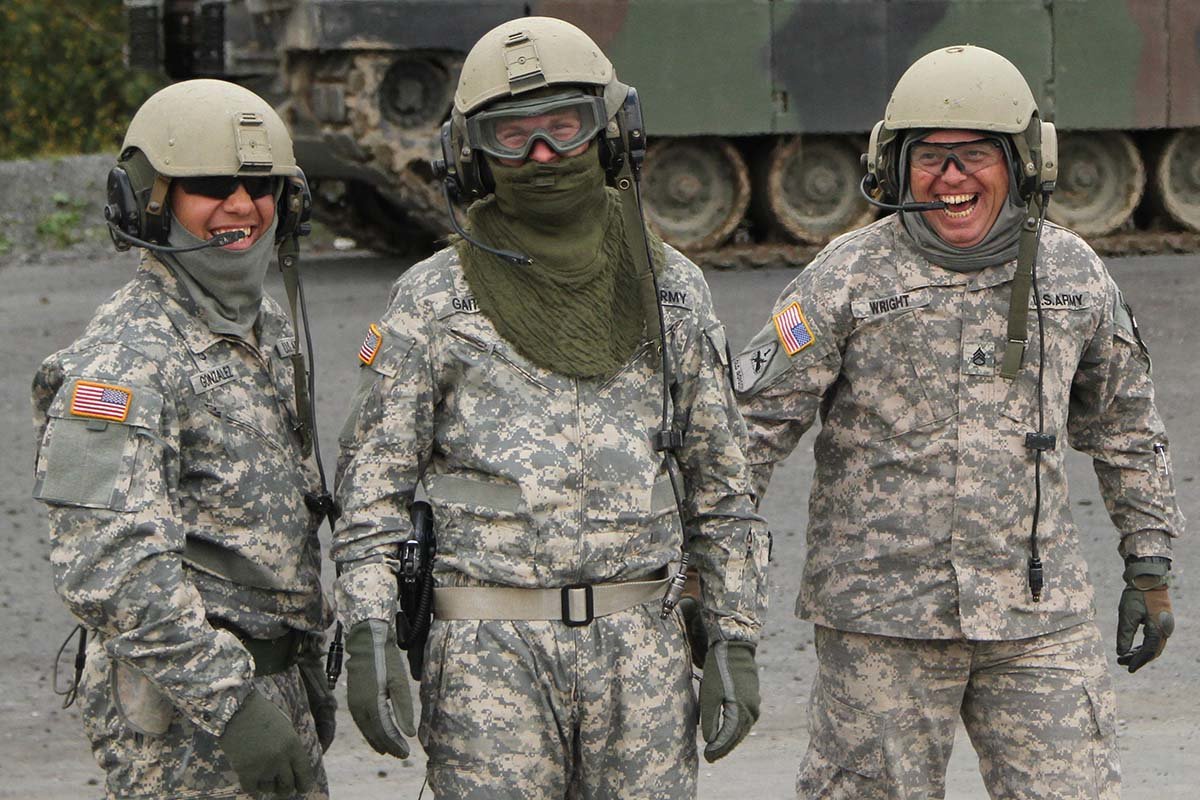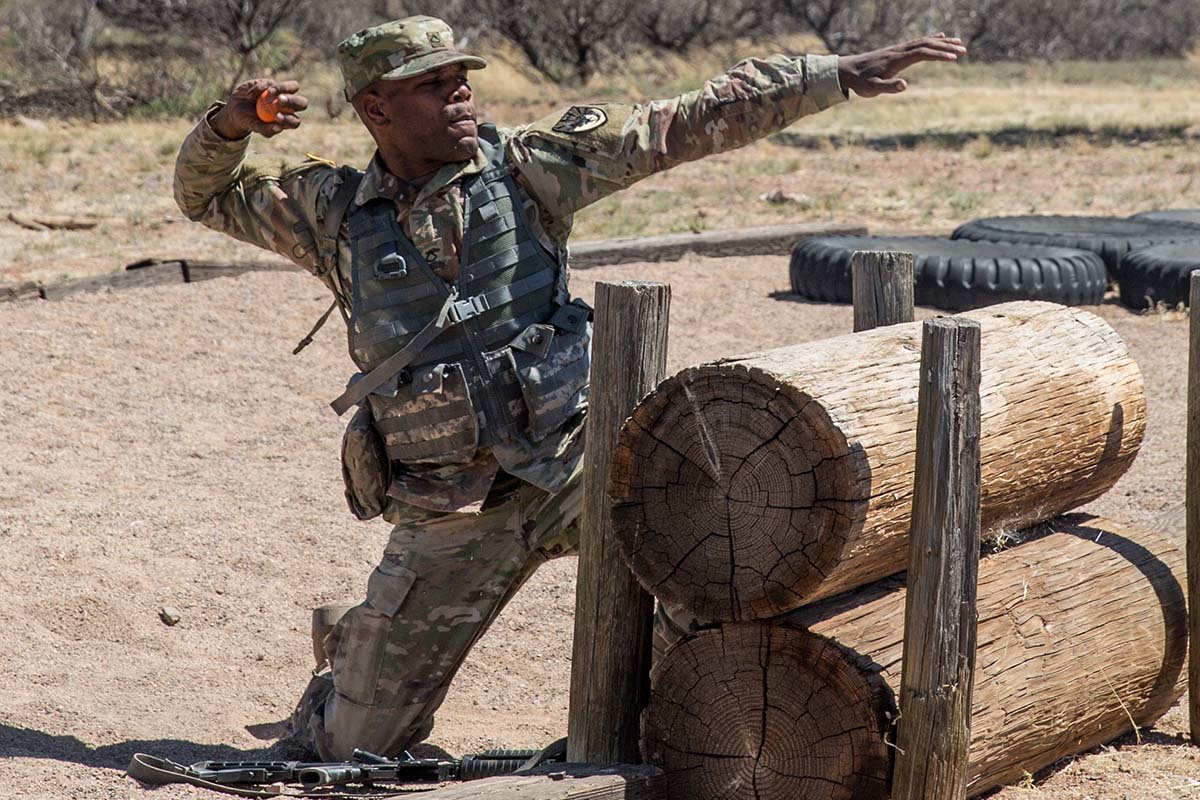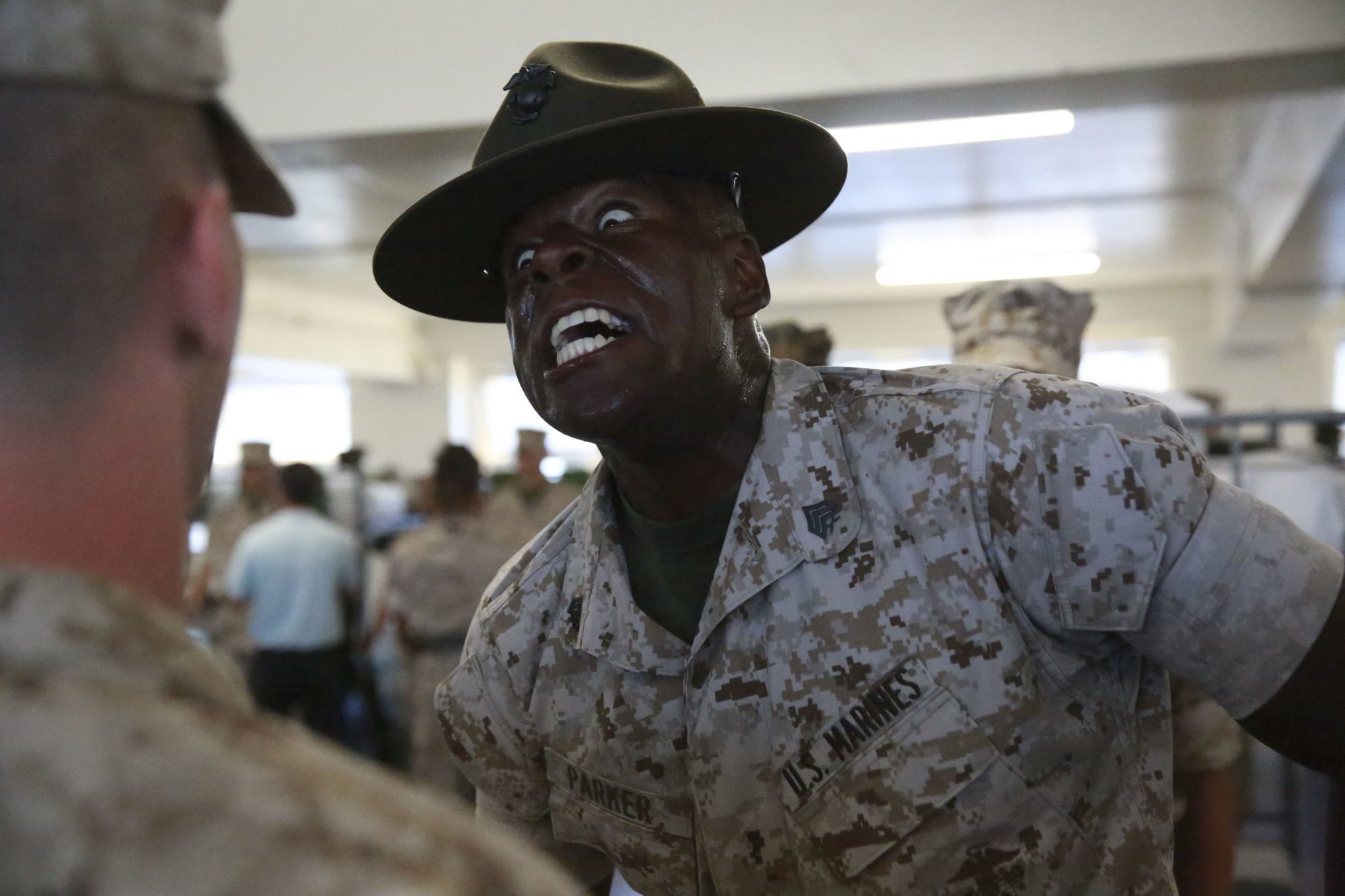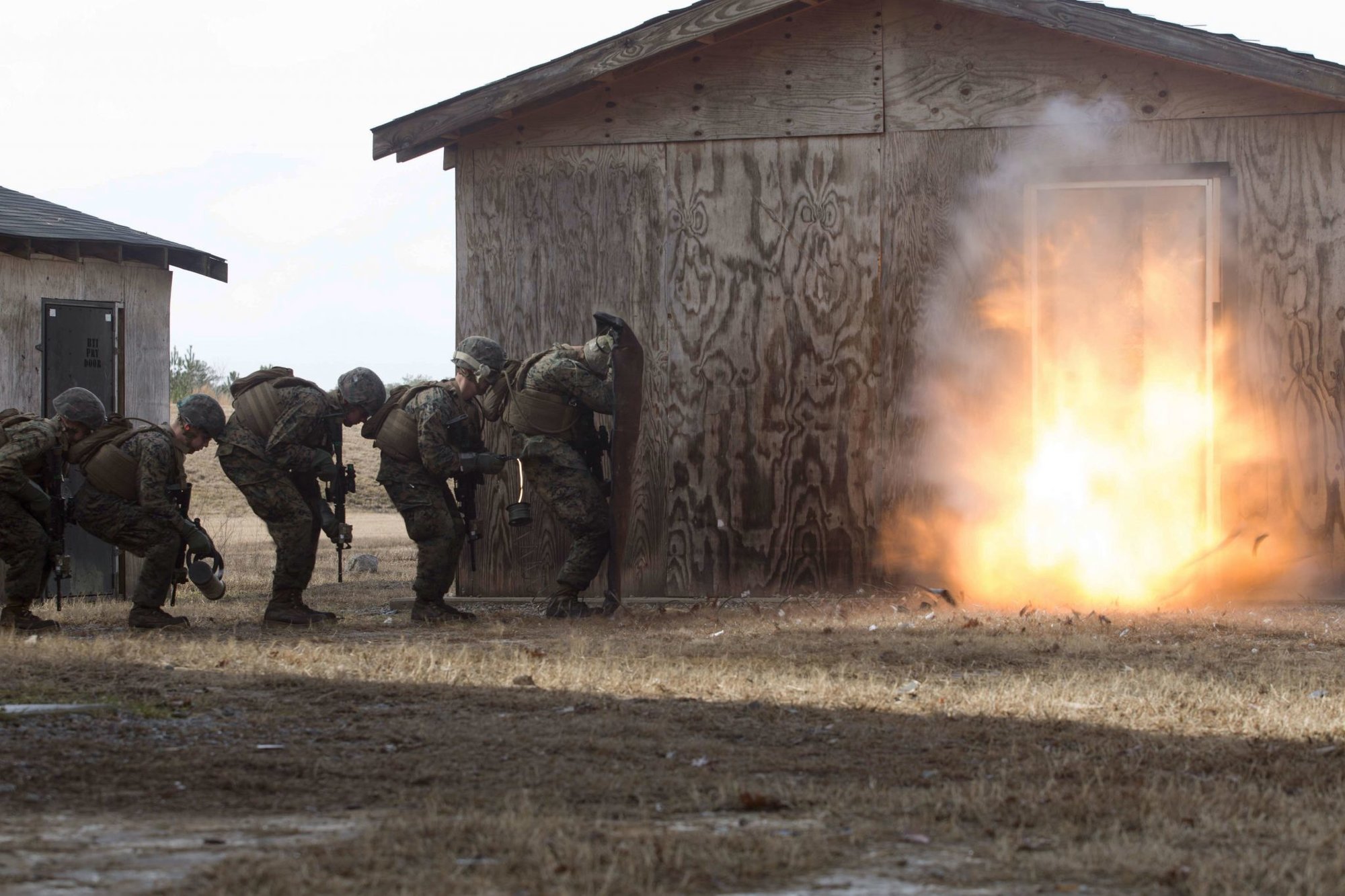Career Advice: 10 Military Workplace Habits That Might Get You Fired

A group of soldiers cracks some jokes that would likely make a mere mortal man cry. US Army photo by Capt. John Farmer.
One of the biggest challenges veterans face when transitioning out of the military is acclimatizing to a new type of work environment. The civilian workspace can be very different from the military, and service members often struggle to adapt to the various social norms and nuances of an office or otherwise white-collar work environment.
Gone are the days of smoking the ever-living-shit out of a subordinate for not shaving that morning, calling someone a dipshit because they forgot a piece of equipment, or telling a peer to go f*ck themselves just because they slightly inconvenienced you. While all these things are perfectly acceptable in the military, these commonalities are likely to cost you your cubicle on the civilian side of things.
Although the United States military instills its service members with skills, qualities, and traits that make them highly sought after and valuable additions to the civilian workforce, the transition can still be hard. That’s why we took the time to compile a list of 10 military workplace habits civilians might not like. They might even get you fired.

Calling Your Co-workers Fat
The military has strict appearance and weight standards. The civilian workplace does not. That’s right, you can’t make fat jokes anymore. Sorry, Tubby.
It’s perfectly acceptable in the military, but walking up to a pudgy co-worker, placing your hand on his belly, and asking him when he’s due will most likely land you in hot water. Civilians are sensitive about their weight, all 400 pounds of it, so keep the comments about it to yourself … or just wait till they’re not around.
Making Physically Weak People Exercise (Mostly for Fun)
Bob from accounting is a string bean and that’s okay. You don’t need him to drag you to cover mid-firefight, but you do need him to get you those TPS reports on time. Stop trying to make him do pushups.
Telling People To ‘Stop Being a Bitch’
Someone in your office is going to complain about their neck, back, or knee pain despite never doing anything to significantly injure their neck, back, or knees. You don’t have any cartilage left anywhere in your body, we get it, but you can’t call your co-workers whiny little bitches just because they didn’t spend the entirety of their 20s rucking like you did.
Passing Out Hilariously Offensive Insults
Most civilians are still capable of being offended — they haven’t had their very souls ripped from their bodies like we have. When a co-worker makes a mistake, resist the urge call them a dumbass or the ideal candidate for a 67th trimester abortion and instead keep those bad boys to yourself.

Coming Into Work Slightly Buzzed
You could easily pull this off in the military because you started your days with PT and could just work the booze out of your system. Civilians typically don’t start their days with PT, and if you come into the office drunk, you’re going to get into deep shit. It’s a buzz kill for sure.
‘Settling It in the Tree Line’
Back in the military when you had a problem with another service member that couldn’t be resolved with words, you could opt to “settle it in the tree line,” which meant “we’re gonna go kick the shit out of each other where our bosses can’t see us.” Those days are dead and gone, my friend. Civis aren’t keen to throw hands, especially at work, and honestly it’s not the way to do things on this side of the house. What? Are you going to beat up Bob for messing up the TPS reports? He’s little. Don’t be a dick.
Picking on the New Guy
You’re not going to believe this, but did you know that it’s common practice in civilian workplaces to treat new employees with respect and dignity? They regularly make attempts to learn new employees’ names instead of making one up for them and don’t make fun of someone just for being new. Weird right?
While it’s common practice in the military, civilians don’t typically clown the hell out of new employees and send them off on silly tasks like finding a box of grid squares or gathering chem light batteries. Civilians treat new employees with respect, and it’s important that you do too.
Killing the Competition
In the military, our objective was to destroy the enemy. Period. When your civilian employers talk about beating the competition, they don’t mean it literally. I used to work at McDonald’s but lost my job after handing out a McAssWhoopin to some Wendy’s employees. Plus, I stole a frosty. Point is, civilian workplaces tend to be less aggressive.

Using Dark Humor
Realize that 95% of the people you work with now don’t have the same sense of humor as you. Your military service probably left you with a pretty dark sense of humor. You likely find morbid jokes and videos of Taliban accidentally blowing themselves up to be hilarious, but understand that most of the folks in your office still have a little bit of soul left and things like injury, death, and destruction frighten them. They like watching TikTok videos and get a kick out of daytime talk shows and cat videos. Save the dark humor for your vet buddies and you’ll keep your job longer.
Saying Fuck 100 Times a Day
Though it’s commonplace in the military, cursing is generally frowned upon in the civilian workplace and will likely get you into some serious fucking trouble. Try to watch your fucking mouth.
Read Next: How New Jersey Firefighters Saved 6 Teenagers Trapped in Trampoline Park Elevator

Eric Miller is a former Army Combat Medic from Parkersburg, West Virginia. He holds a bachelor’s degree in history and has worked with homeless populations and veteran services throughout the state. He is an avid outdoorsman and has recently become interested in woodworking.
BRCC and Bad Moon Print Press team up for an exclusive, limited-edition T-shirt design!
BRCC partners with Team Room Design for an exclusive T-shirt release!
Thirty Seconds Out has partnered with BRCC for an exclusive shirt design invoking the God of Winter.
Lucas O'Hara of Grizzly Forge has teamed up with BRCC for a badass, exclusive Shirt Club T-shirt design featuring his most popular knife and tiomahawk.
Coffee or Die sits down with one of the graphic designers behind Black Rifle Coffee's signature look and vibe.
Biden will award the Medal of Honor to a Vietnam War Army helicopter pilot who risked his life to save a reconnaissance team from almost certain death.
Ever wonder how much Jack Mandaville would f*ck sh*t up if he went back in time? The American Revolution didn't even see him coming.
A nearly 200-year-old West Point time capsule that at first appeared to yield little more than dust contains hidden treasure, the US Military Academy said.












